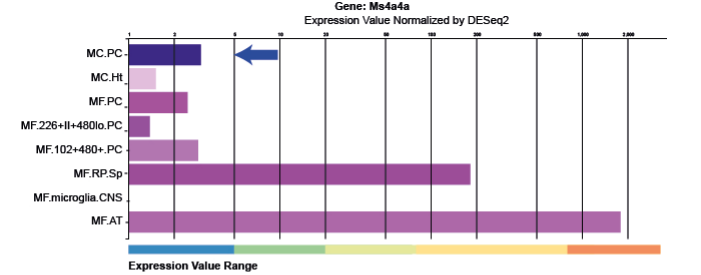PRIN2022 - Sensing and integrating different microenvironmental signals in innate immune cells: role of MS4A4A protein

Titolo progetto: PRIN2022 - Sensing and integrating different microenvironmental signals in innate immune cells: role of MS4A4A protein
Programma di finanziamento: PRIN 2022
Responsabile scientifico: prof. Carlo Ennio Michele Pucillo
Ruolo del DAME: coordinatore
Descrizione generale:
Inflammatory bowel disease (IBD) is a group of disorders (including Crohn’s disease and ulcerative colitis) that cause chronic inflammation in the intestines. Recent advances in immunology and genetics have clarified that the innate and adaptive immune response is equally important in the pathogenesis of the IBD. Two types of innate immune cells playing a role in IBDs are mast cells (MCs) and macrophages (MOs), intestinal tissue-resident cells that exhibit an array of molecules involved in cell-cell, cell-extracellular matrix adhesion, mediating delivery of costimulatory signals that empower these cells with an ability to react to multiple nonspecific and specific stimuli. Their tissue distribution and their capability to release many cytokines after stimulation indicates them as potential regulators of the polarization of the immune response. It has been shown for MCs, and it is emerging for MOs too, that they present different secretory phenotypes depending on the intensity/quality of the stimulus, training of the cells, and the integration of different signal transduction pathways. The consequence is the adjustment of the profile of released molecules, expression of newly synthesized membrane protein, and cellular trafficking, adapting to the ongoing immune response and, potentially, contributing to its regulation. It is emerging that an important role in the regulation of the activities of numerous membrane receptors, as well as in the construction of multimolecular complexes and vesicular trafficking, is played by MS4A family. MS4A proteins are differentially expressed in leukocyte subsets, and their expression in different combinations might contribute to fine-tuning immune cell activation. MS4A proteins act as components of “sensing machineries” regulating cell activation by working as ion channels or by modulating the signaling of other immunoreceptors, including the B cell receptor, other immunoglobulin receptors, pattern recognition or triggering receptors. Among these proteins, MS4A4A has been identified in both human and murine M2-type macrophages, in tumorassociated macrophages and in mast cells. The present proposal will investigate the role of MS4A4A protein in the regulation and integration of outside-in signaling from Fc receptors in MCs and MOs, first in vitro and then in vivo and ex vivo. Its function in the tuning of Fc-receptor downstream signaling pathway activation will be deeply investigated in vitro, as well as its role in MCs and MOs development and polarization. The role of MS4A4A in IBD will be investigated by transcriptomic analysis of single cells isolated from intestinal inflamed tissue of MS4A KO mice or MC/macrophages deficient mice reconstituted with BMMC/BMDM from MS4A4 -/- mice. Data will be then validated in vitro taking advantage of 3D tissue culture models. At its completion, the data obtained from this project will explain the role of MS4A4A in MCs and MOs training, activation, and polarization and more importantly if it can be used, in the future, as a target for IBD tailored therapies.


Partner del progetto:
- Università degli Studi di Udine
- Università degli Studi di Milano
Date inizio e fine progetto: 28.09.2023 – 27.09.2025
Budget totale del progetto: 146.075,00€
Sito web: https://prin.mur.gov.it/
Finanziato dall’Unione europea – Next Generation EU